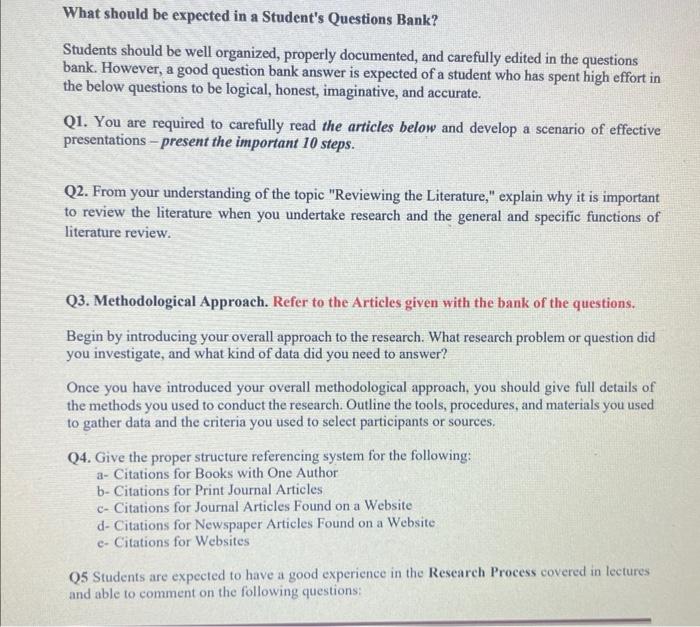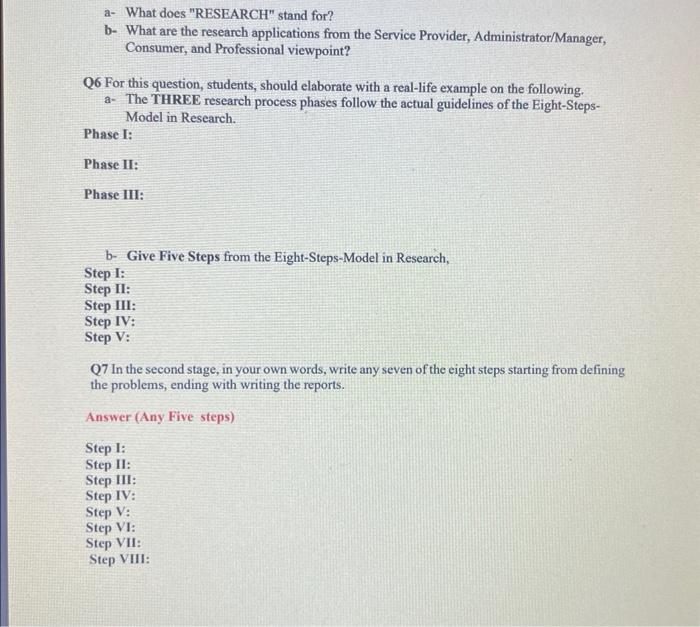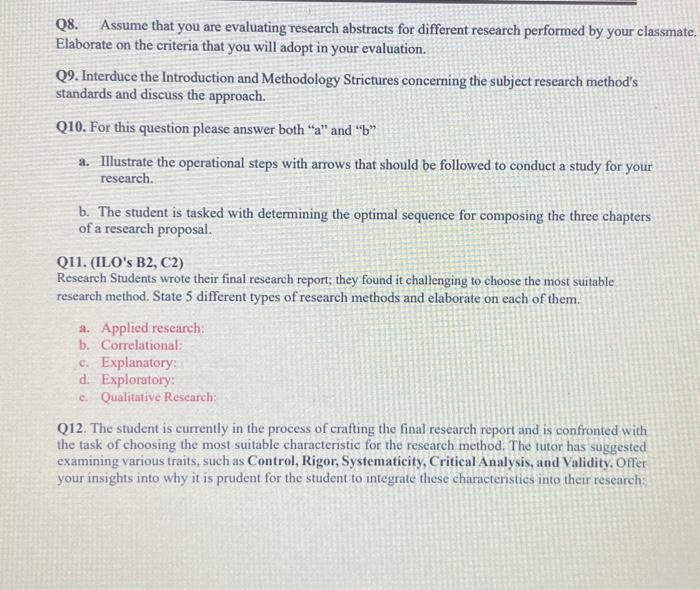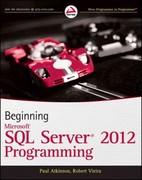What should be expected in a Student's Questions Bank? Students should be well organized, properly documented, and carefully edited in the questions bank. However, a good question bank answer is expected of a student who has spent high effort in the below questions to be logical, honest, imaginative, and accurate. Q1. You are required to carefully read the articles below and develop a scenario of effective presentations - present the important 10 steps. Q2. From your understanding of the topic "Reviewing the Literature," explain why it is important to review the literature when you undertake research and the general and specific functions of literature review. Q3. Methodological Approach. Refer to the Articles given with the bank of the questions. Begin by introducing your overall approach to the research. What research problem or question did you investigate, and what kind of data did you need to answer? Once you have introduced your overall methodological approach, you should give full details of the methods you used to conduct the research. Outline the tools, procedures, and materials you used to gather data and the criteria you used to select participants or sources. Q4. Give the proper structure referencing system for the following: a- Citations for Books with One Author b- Citations for Print Journal Articles c- Citations for Journal Articles Found on a Website d- Citations for Newspaper Articles Found on a Website c. Citations for Websites Q5 Students are expected to have a good experience in the Research Process covered in lectures and able to comment on the following questions: a- What does "RESEARCH" stand for? b- What are the research applications from the Service Provider, Administrator/Manager, Consumer, and Professional viewpoint? Q6 For this question, students, should elaborate with a real-life example on the following. a- The THREE research process phases follow the actual guidelines of the Eight-StepsModel in Research. Phase I: Phase II: Phase III: b- Give Five Steps from the Eight-Steps-Model in Research, Step I: Step II: Step III: Step IV: Step V: Q7 In the second stage, in your own words, write any seven of the eight steps starting from defining the problems, ending with writing the reports. Answer (Any Five steps) Step I: Step II: Step III: Step IV: Step V: Step VI: Step VII: Step VIII: Q8. Assume that you are evaluating research abstracts for different research performed by your classmate Elaborate on the criteria that you will adopt in your evaluation. Q9. Interduce the Introduction and Methodology Strictures concerning the subject research method's standards and discuss the approach. Q10. For this question please answer both "a" and "b" a. Illustrate the operational steps with arrows that should be followed to conduct a study for your research. b. The student is tasked with determining the optimal sequence for composing the three chapters of a research proposal. Q11. (ILO's B2, C2) Research Students wrote their final research report; they found it challenging to choose the most suitable research method. State 5 different types of research methods and elaborate on each of them. a. Applied research: b. Correlational: c. Explanatory: d. Exploratory: c. Qualitative Rescarch: Q12. The student is currently in the process of crafting the final research report and is confronted with the task of choosing the most suitable characteristic for the research method. The tutor has suggested examining various traits, such as Control, Rigor, Systematicity, Critical Analysis, and Validity. Offer your insights into why it is prudent for the student to integrate these characteristics into their research: Part B Case Study In this part, students from Information Technology (I.T.) will answer using the Abstract generated for IT specialization on page \# Below. Students from Engineering will answer using the Abstract generated for Engineering specialization on Page \# Below. a- Propose a new Title concerning the field of study shown in the Case Study. Answer Proposed Title: Effective tities in Research have several characteristics. First, indicate the subject and scope of the study accurately. Avoid using abbreviations. Use words that create a positive impression and stimulate reader interest. Finally, use current terminology from the field of study. [Result]: A [method] study of [topic] among [sample] b. Abstract Assume that you are evaluating research abstracts for different research performed by your classmate. Elaborate on the criteria that you will adopt in your evaluation. c. Introduction chapter. (One Page) This chapter should contain brief background information about the project, the problem statement, the questions, objectives, hypotheses, or the scope of the project. d. Methodological Approach. (Two Pages) Begin by introducing your overall approach to the Research. What research problem or question did you investigate, and what kind of data did you need to answer? Once you have introduced your overall methodological approach, you should give full details of the methods you used to conduct the Research. Outline the tools, procedures, and materials you used to gather and analyze the data and the eriteria to select sources. e. Once you have introduced your overall methodological approach, (One Page) you should give full details of the methods you used to conduct the Rescarch Outline the tools, procedures, and materials you used to gather and analyze the data and the criteria to select sourees. f. Please carefully review the provided case study and create a scenario outlining 10 effective presentation tips. IT case study Digital technologies have brought changes to the nature and scope of education and led education systems worldwide to adopt strategies and policies for ICT integration. The latter brought about issues regarding the quality of teaching and learning with ICTs, especially concerning the understanding, adaptation, and design of the education systems following current technological trends. These issues were emphasized during the COVID-19 pandemic accelerated the use of digital technologies in education, generating questions regarding digitalization in schools. Specifically, many schools demonstrated a lack of experience and low digital capacity, which resulted in widening gaps, inequalities, and learning losses. Such results have engendered the need for schools to learn and build upon the experience to enhance their digital capacity and preparedness, increase their digitalization levels, and achieve a successful digital transformation. Given that the integration of digital technologies is a complex and continuous process that impacts different actors within the school ecosystem, there is a need to show how these impacts are interconnected and identify the factors that can encourage effective and efficient change in the school environments. For this purpose, we conducted research. The results of the research were organized thematically based on the evidence presented about the impact of digital technology on education and the factors that affect the schools' digital capacity and digital transformation. The findings suggest that ICT integration in schools impacts more than just students' performance; it affects several other schoolrelated aspects and stakeholders, too. Furthermore, various factors affect the impact of digital technologies on education. These factors are interconnected and play a vital role in the digital transformation process. The study results shed light on how ICTs can positively contribute to the digital transformation of schools and which factors should be considered for schools to achicve effective and efficient change. Keywords - Digital technologies - Education - Impact - Digital capacity - Digital transformation To address the issues outlined above, the following research questions have been formulated: a. What is the impact of digital technologies on education? b. Which factors might affect a school's digital capacity and transformation? Factors that affect the impact of ICTs on education. Factors that affect the impact of ICTs on education. Current work and trends in the study of the impact of digital technologies on schools' digital capacit Fig. 2 Current work and trends in the study of the impact of digital technologies on schools' digital capacity End Note: Please check the articles given with the Bank of the













